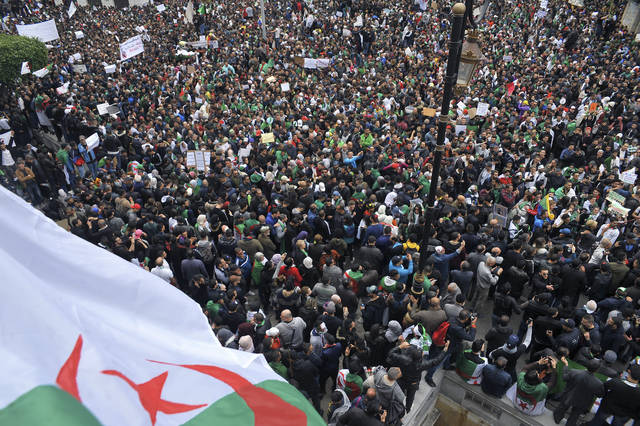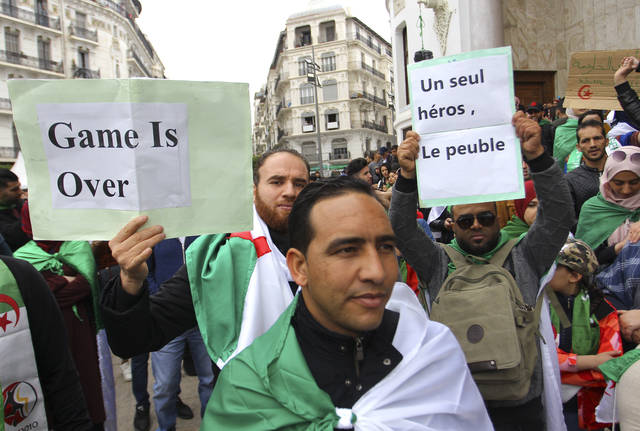ALGIERS, Algeria — Hundreds of thousands of protesters flooded the streets of the Algerian capital in their third, and largest, Friday protest to try to break President Abdelaziz Bouteflika’s hold on power.
Wrapped in Algerian flags, singing and tossing flowers, festive crowds overflowed into all the main boulevards and other streets in the city on the Mediterranean.
There was no official count of the crowd size, but a police chief estimated about 500,000 when asked.
Tensions flared as the hours-long march began to disperse, with police firing tear gas at flanks of protesters trying to move toward the presidential palace, repeating a scenario from last Friday’s protest. Small groups were seen pulling tiles from the roof of the antiquities museum to lob at police, drawing volleys of tear gas.
The troublemakers weren’t representative of the much larger streams of peaceful protesters pouring through streets with chants against Bouteflika, who has been far from the angry crowds in a Geneva hospital for nearly two weeks for what his office described as medical tests.
The protesters are challenging Bouteflika’s fitness to run for a fifth term in next month’s election. The Algerian leader has been in power since 1999 but has been all but absent from the public eye since a stroke in 2013.
The protesters converged after prayers while onlookers threw flowers and confetti from flag-draped balconies. Security forces watched from the sidelines.
It’s the third Friday running people have protested, and the demonstrations have continued into the week. Calls have gone out on social media for a general strike if the government doesn’t cede.
“Game over” was scrawled on a poster held high by some protesters, a slogan seen at other demonstrations. Among the chants was “4 plus 1 = 0” — an illusion to Bouteflika’s bid for a fifth term. His eligibility, and that of 20 other candidates, is to be decided next week by the Constitutional Council. Several potential heavyweights have withdrawn from the race.
Demonstrations were held in other Algerian cities, from Tizi Ouzou in the Kabylie region east of the capital to the southern reaches of what is Africa’s largest country by surface. The reliable online site TSA Algerie said protests were held in Ghardaia and the desert city of Hassi Messaoud, a site for Algeria’s oil fields. Hydrocarbons are the nation’s main source of income.
More than a dozen political parties and unions have thrown their support behind the widening street protests.
At a meeting that ended late Thursday, 15 opposition parties and four unions praised the protest movement and criticized the government for its “stubborn power” in insisting upon the elections in April.






